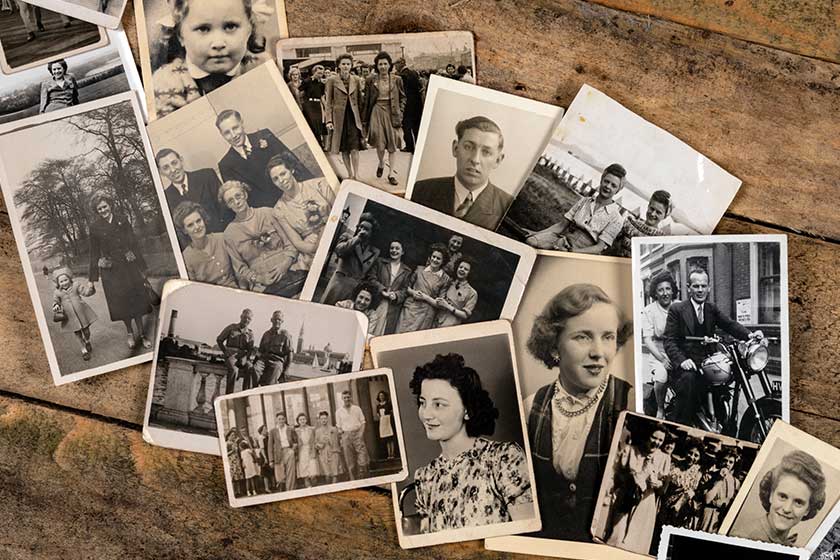Genealogy, the study of family ancestry, can be a fascinating journey into the past for your family members. This exploration satisfies curiosity about one’s roots, strengthens familial bonds, and enriches the understanding of personal heritage. Engaging with genealogy allows your loved ones to connect with their lineage, giving them a deeper sense of identity and belonging.
The Psychological Benefits of Genealogy
Discovering one’s genealogy can have profound psychological benefits. For many older adults, knowing their ancestry provides a sense of continuity and permanence that can be comforting in later years. As they uncover stories of their ancestors’ struggles, successes, and life decisions, your family members can experience increased self-esteem and a robust sense of personal identity. This connection to the past can also foster resilience, as they recognize the strength and endurance inherent in their lineage.
Moreover, genealogy can serve as a therapeutic activity. The process of researching and piecing together family history can be intellectually stimulating and offer a satisfying challenge. This engagement helps keep the mind active, potentially delaying cognitive decline and fostering mental agility. Additionally, the sense of accomplishment when new information is discovered brings joy and a feeling of achievement.
Building Family Bonds Through Shared Histories
Genealogy can significantly enhance family ties. As your loved ones delve into their family history, they often share these findings with relatives, sparking conversations and creating a shared project that all generations can contribute to and cherish. These discussions can bridge gaps between younger family members and their elders, promoting an intergenerational exchange of stories, values, and traditions.
This shared interest in family roots often leads to family reunions or collaborative research trips, which can strengthen ties and create lasting memories. The act of gathering and preserving family history is a collective endeavor that fosters family unity and ensures that the legacies of ancestors continue to be honored and remembered.
Cultural Connection and Personal Identity
Understanding one’s genealogy also deepens a connection to cultural heritage. It allows your family members to explore the customs, traditions, languages, and historical contexts of their ancestors. This exploration can instill a sense of pride and a more profound connection to cultural roots, which is especially meaningful for families with diverse backgrounds.
Moreover, for those who feel disconnected from their cultural heritage, genealogy offers a path to rediscover and reclaim their cultural identity. This can be particularly empowering and enriching, adding a dimension of personal history that complements their present experiences and knowledge.
Genealogy as a Legacy Tool
For many in their later years, there is a significant desire to pass on a legacy to the next generations. Genealogy provides a structured way to fulfill this desire, enabling your loved ones to leave a well-documented family history that future generations can learn from and cherish. This legacy of knowledge becomes a treasured heirloom, more personal and enduring than material possessions.
Creating a comprehensive family tree, complete with stories, photographs, and historical documents, ensures that the lineage and legacy of the family are preserved. This not only benefits current members but also serves as an invaluable resource for future family historians.
Practical Tips for Starting Genealogy Research
-
Navigating Records and Resources
Beginning genealogy research can seem daunting, but it becomes an achievable and enjoyable task with the right approach. Encourage your loved ones to start by gathering available family documents such as birth certificates, marriage licenses, and old photographs. These documents can provide initial clues and essential information.
Local libraries and online databases are invaluable resources for genealogy research. Many libraries offer access to specialized databases like Ancestry.com or FamilySearch.org, which can help trace family lines and access census records, military records, and immigration logs. Additionally, reaching out to distant relatives can uncover previously unknown stories or documents that can further enrich the family history.
-
Leveraging Technology in Genealogy
Various tools and software are available to simplify the process of organizing and storing genealogical data. Encourage your loved ones to use genealogy software programs, which can help create digital family trees and securely store scanned documents and photographs. These tools often feature user-friendly interfaces that make navigating their family history easier for individuals of all ages.
Moreover, DNA testing services have become popular in genealogy, offering insights into ethnic backgrounds and connecting distant relatives. These tests can provide a fascinating layer of detail to your family history, revealing connections and ancestral roots that may not be documented elsewhere.
At our Assisted Living community, we understand the importance of family history and the sense of belonging it brings. We encourage our residents to explore their genealogy to connect with their past and share rich stories with us.







